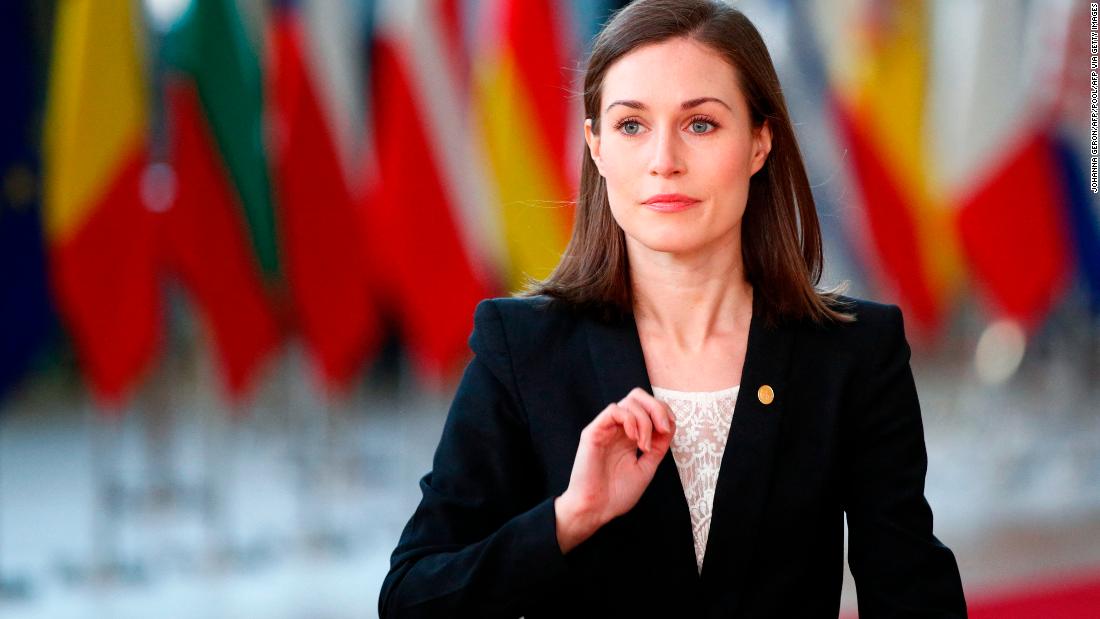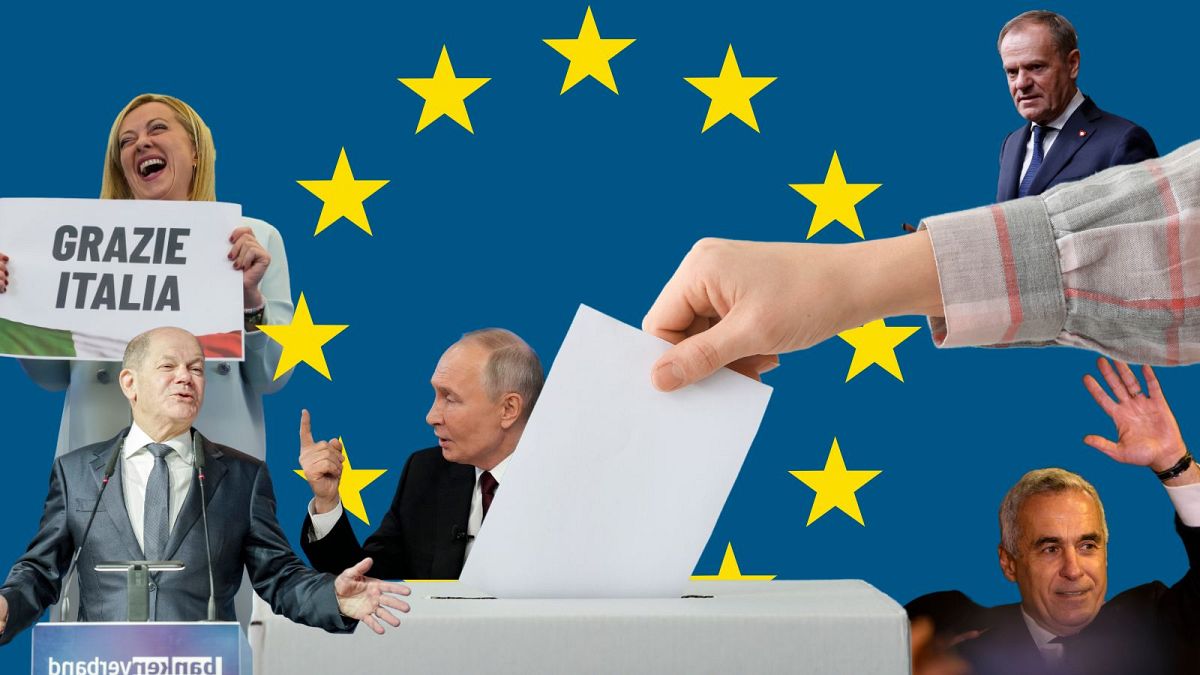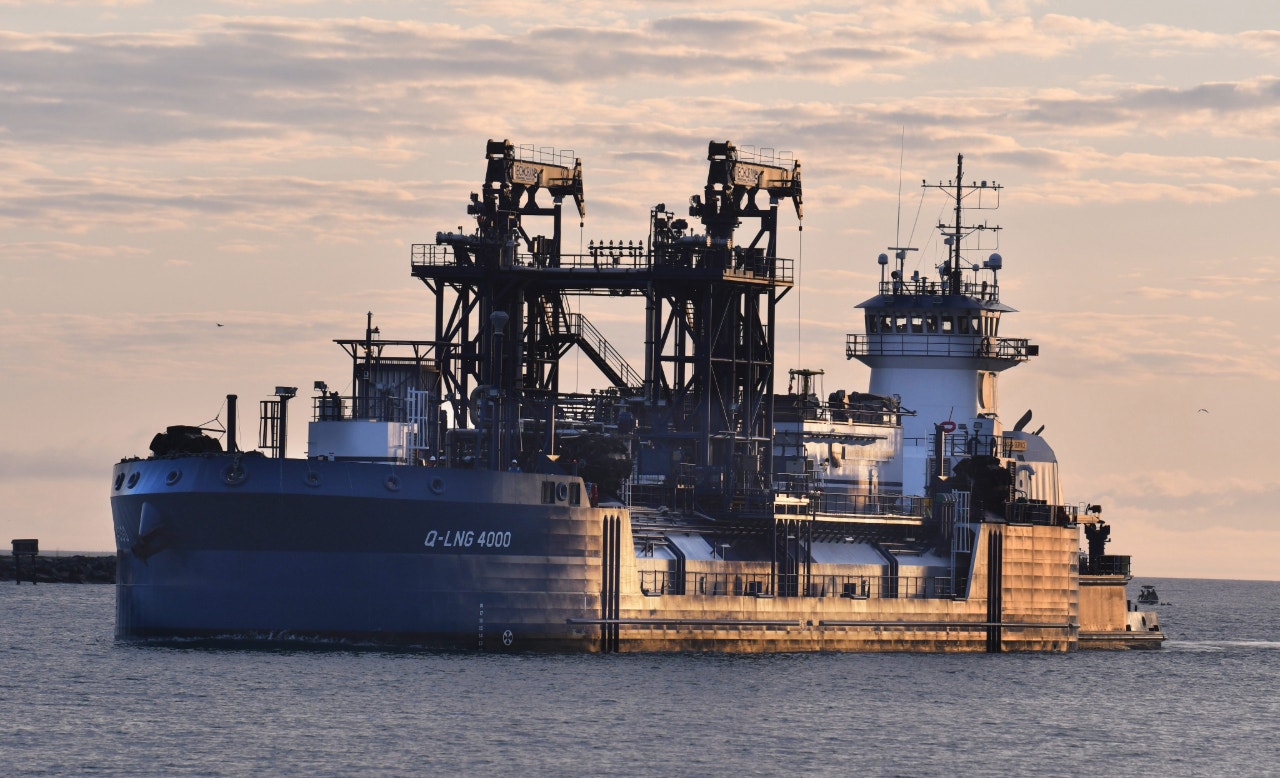Russian gas flows through Ukraine are set to stop on Wednesday when a transit deal between the two countries expires in the wake of Moscow’s full-scale invasion.
The pipeline was one of the last two routes still carrying Russian gas to Europe nearly three years into the full-scale war. EU countries will lose about 5 per cent of gas imports in the middle of winter.
While traders had long expected flows to stop, the end of the pipeline route through Ukraine will affect Europe’s gas balance at a time when demand for heating is high. Slovakia is the country most affected.
“While one would assume that losing those volumes [is] priced in, a strong upward price response initially isn’t out of the question,” said Aldo Spanjer, senior commodities strategist at BNP Paribas.
The deal to allow Russian gas to pass through Ukraine was agreed at the end of 2019, signed a day before the previous 10-year contract between the national gas companies was set to expire. At the time, the European Commission strongly promoted the deal.
After Russia’s 2022 full-scale invasion of Ukraine, however, the commission encouraged member states to seek alternative supplies as the bloc moved to wean itself off Russian fossil fuel imports. The Moscow-friendly governments of Hungary and Slovakia have resisted that shift and have sought to extend the deal beyond January 1.
The Ukrainian government had telegraphed months in advance that it was unwilling to negotiate an extension to the deal, as it wanted to deprive the Kremlin of its income from gas exports. Ending the flows would result in a $6.5bn loss for Russia, unless it could redirect them, according to the Brussels-based think-tank, Bruegel.
But it would also be a financial blow to Ukraine, which earned about $1bn a year in gas transit fees, though only about a fifth of that was gross profits. Analysts have suggested that Ukraine’s vast gas pipeline infrastructure could face increasing Russian attack, if there was no Russian gas flowing through it.
Slovak Prime Minister Robert Fico visited Moscow on December 22 to discuss the gas transit contract. He blasted Ukraine’s intransigence on the deal, asking whether the country had “the right to damage the economic national interests of an [EU] member state”.
Fico said on Facebook shortly before the deal’s expiry that “other gas transit options than Russian gas were presented to Ukrainian partners, but these were also rejected by the Ukrainian president”. The Slovak prime minister has also threatened to cut off back-up electricity supplies from Slovakia to Ukraine as retaliation.
Hungary’s Prime Minister Viktor Orbán has likewise sought to find a workaround to allow Russian gas imports via Ukraine. His government has also turned to the last remaining pipeline shipping Russian gas via Turkey and to neighbouring Romania to complement supplies.
Austria, which still imported Russian gas throughout 2024, has shifted to alternative sources such as liquid natural gas imports. Its energy company OMV in mid-December terminated its long-term contract with Russia’s Gazprom because of a legal dispute.
The cut-off of gas will also have a significant impact on neighbouring Moldova, which in mid-December introduced a state of emergency in the energy sector because of the uncertainty around Russian gas transit.
The halt to Russian gas flows through Ukraine is likely to increase European demand for pricier LNG, for which Asia is also competing.
EU officials have been adamant that the bloc can live without Russian pipeline supplies, even if it means accepting more expensive shipped gas from elsewhere.
The European Commission said on Tuesday it did not expect disruption. “European gas infrastructure is flexible enough to provide gas of non-Russian origin to central and eastern Europe via alternative routes,” it said. “It has been reinforced with significant new LNG import capacities since 2022.”
The Turkey pipeline still transporting Russian gas to Europe contributes about 5 per cent of the EU’s imports. The US recently imposed sanctions on Gazprombank, the main conduit for Russian energy payments.
But to mitigate the impact of sanctions, Russian President Vladimir Putin in early December dropped a requirement for foreign buyers of Russian gas to pay through the bank. Countries such as Turkey and Hungary also said they have received US exemptions from sanctions.
“The sanctions had previously added an extra layer of uncertainty over the fate of Europe’s remaining Russian gas supply as we enter the new year, helping to keep gas prices volatile,” said Natasha Fielding, head of European gas pricing at Argus Media, a pricing agency. The US waiver meant that “buyers of Russian gas delivered through the Turkish Stream pipeline could breathe a sigh of relief”, she said.
Traders are not ruling out an increase in Russian gas flows into Europe in the future. European companies that are reeling from high gas and energy prices, forcing them to cut back production, would return to buying Russian gas, which was inherently cheaper than LNG, one senior trader said.
“At some stage there will be a peace agreement . . . People will want to end the war, therefore they have to sign a peace agreement. One of the things Russia will get is its ability to resupply” Europe with gas, the trader said.
While European governments may impose restrictions to prevent the continent from once again becoming over-reliant on Russian gas, the trader said, “you would expect to see some Russian gas back in Europe, because fundamentally, geography has not changed”.
Additional reporting by Andrew Bounds




























/cdn.vox-cdn.com/uploads/chorus_asset/file/25672934/Metaphor_Key_Art_Horizontal.png)



/cdn.vox-cdn.com/uploads/chorus_asset/file/24982514/Quest_3_dock.jpg)


